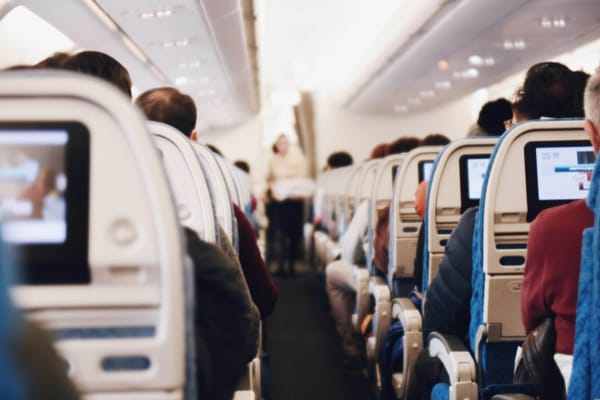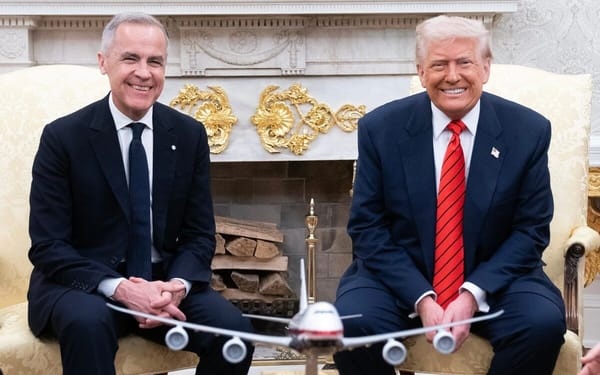
On July 2, United Food and Commercial Workers (UFCW) Local 1518 in British Columbia announced that more than 500 Uber drivers in Greater Victoria have unionized.
This historic decision follows months of organizing among drivers and marks the first ever union certification of app-based drivers in Canada.
Uber only began operating in Victoria in June 2023 and recently expanded its service across B.C.
UFCW 1518 is the province’s largest private sector union local, representing more than 28,000 workers in the retail, grocery, health care and cannabis industries.
The mega-local has made significant organizing breakthroughs over the past several years. After successfully unionizing the B.C. cannabis sector, 1518 also secured representation for nearly 400 temporary foreign agricultural workers at Highline Mushrooms farms in Langley and Abbotsford. This was the largest group of agricultural workers ever to organize in Canadian history and a major development in the struggle for temporary foreign worker rights.
“UFCW 1518 is proud to welcome Greater Victoria’s Uber drivers as our newest members following their historic union certification. As BC’s largest private sector union, we are well-positioned to support these groundbreaking workers as they embark on negotiating Canada’s first ever collective agreement for rideshare drivers,” the union said in a press release reporting the certification.
Drivers will now begin negotiating a first collective agreement later this summer, offering the chance to set an enormous precedent for gig economy workers the world over. In particular, pay transparency remains a central concern for drivers. Ride-hail apps like Uber continue to obscure how drivers are paid for their labour.
“This is a defining moment for the labour movement in Canada. [...] The certification of Uber drivers in Victoria shows that workers in every sector—even in the platform economy—can organize and win. These drivers are setting a national precedent, and UFCW Canada is committed to supporting them every step of the way as they work toward a strong and fair first collective agreement,” said UFCW Canada’s national president, Shawn Haggerty.
Although this is a truly historic victory, it may prove difficult to replicate elsewhere. In many respects, B.C. is one of Canada’s more worker-friendly jurisdictions, having reformed labour laws related to the gig economy and union organizing over the past couple of years.
In November 2023, the NDP government passed Bill 48, amending the Employment Standards Act, Temporary Foreign Worker Protection Act, and Workers Compensation Act to extend a form of employment status to a new category of “online platform workers.”
Bill 48, while continuing to exclude gig workers from the full suite of protections attached to employment status, nevertheless created significant protections under the above pieces of legislation, including a minimum wage for “engaged time” and a mileage allowance.
Most significantly, by deeming app companies the employers of online platform workers, the amendments compelled these firms to comply with statutory obligations, such as obtaining and paying workers’ compensation insurance as well as recognizing and bargaining with any group of workers who unionize.
By finally clarifying the employment relationship between gig workers and app-based companies, the government’s legislative reforms lowered the barriers facing workers trying to unionize.
Key also to Uber drivers’ successful unionization was card-check unionization.
In June 2022, the province reintroduced card-check, allowing unions to certify when 55 per cent of workers in a unit indicate union membership by signing cards. Card-check, or “single-step,” certification reduces barriers to unionization by removing a mandatory, secret-ballot election and thus the ability of employers to dissuade workers from organizing. After card-check came into force, union applications grew by nearly 200 per cent over a two-year period.
It is notoriously difficult to determine how many people are “employed” by Uber, as drivers join and leave the platform regularly. The union signed up more than 500 workers, estimating that there were likely 600 to 700 drivers in Victoria at the time. After cards were submitted in March, the labour board was satisfied that the union met the 55 per cent threshold required for certification. Now that UFCW will bargain with Uber, the union may gain a better understanding of the company’s “hiring” process and perhaps compel them to formalize it in the Greater Victoria Area.
UFCW’s certification in Victoria is also the outgrowth of its previous and controversial deal to “represent” drivers in a non-union capacity. In January 2022, the union and Uber announced they had entered into “a historic agreement” whereby UFCW would aid drivers and delivery workers when facing deactivation or other issues, if requested by the worker.
Under this arrangement, Uber drivers did not become union members and UFCW faced wide criticism in labour circles for what many perceived to be a deal contrary to the principles of unionism. Some questioned if the deal was lawful under Canadian labour legislation, while Gig Workers United, an affiliate of the Canadian Union of Postal Workers, contested UFCW’s agreement for interfering with its own grassroots organizing work.
Not long after, it was announced that the union would abandon its effort to certify a bargaining unit of Uber Black drivers in Ontario. The “settlement” ultimately reached included various commitments from the company and ended roughly five years of legal battles over drivers’ employment status and ability to unionize.
The national pact between Uber and UFCW effectively nullified the contentious Uber Black organizing drive. However, out of the settlement also emerged commitments that the union and Uber would jointly lobby governments for reforms ostensibly to their mutual benefit. This equally controversial decision seemed to suggest that UFCW had acquiesced to Uber’s steadfast refusal to budge on the issue of employment status for drivers.
With a successful certification in hand, critics of UFCW’s previous deal with Uber may be compelled to reevaluate the union’s strategy. Many considered it highly unlikely that union certifications would ever materialize out of the national agreement. Yet the union seems to have had a longer-term plan. According to UFCW, the union filed more than 4,000 disputes on behalf of drivers since the agreement was struck in 2022, perhaps building support and trust with workers along the way.
The question now becomes: Can the union build on Victoria’s momentum and win similar victories elsewhere?
Much will hinge on securing a first collective agreement that meets the needs of drivers. As well, there is the possibility that Uber threatens to exit the jurisdiction rather than negotiate with a union.
British Columbia, like Quebec, has first-contract arbitration, effectively preventing employers from evading their duty to bargain. Recall that Amazon fled Quebec at precisely the moment it was facing an arbitrated first contract. Moreover, Foodora’s flight from Ontario followed that province’s labour board recognizing delivery couriers as “dependent contractors” with the ability to form a union.
In other words, while Uber drivers are making history, there is still a huge fight ahead. It will be up to UFCW 1518 to keep their new unit of drivers engaged and motivated to secure a good first contract.
Uber drivers in Victoria could be the ones to finally bring the gig economy to heel and open the door to union membership for all platform workers.
Recent Class Struggle Issues
- July 7 | CUPE Is Fighting The Zionist-Instigated Firing Of A Paramedic
- June 30 | The Scab Ban Is A Huge Win, But It Must Be Enforced
- June 23 | The Liberals Are Bailing Out Canada Post Management Again
- June 16 | Exploring Our 300,000-Year Struggle for Equality







